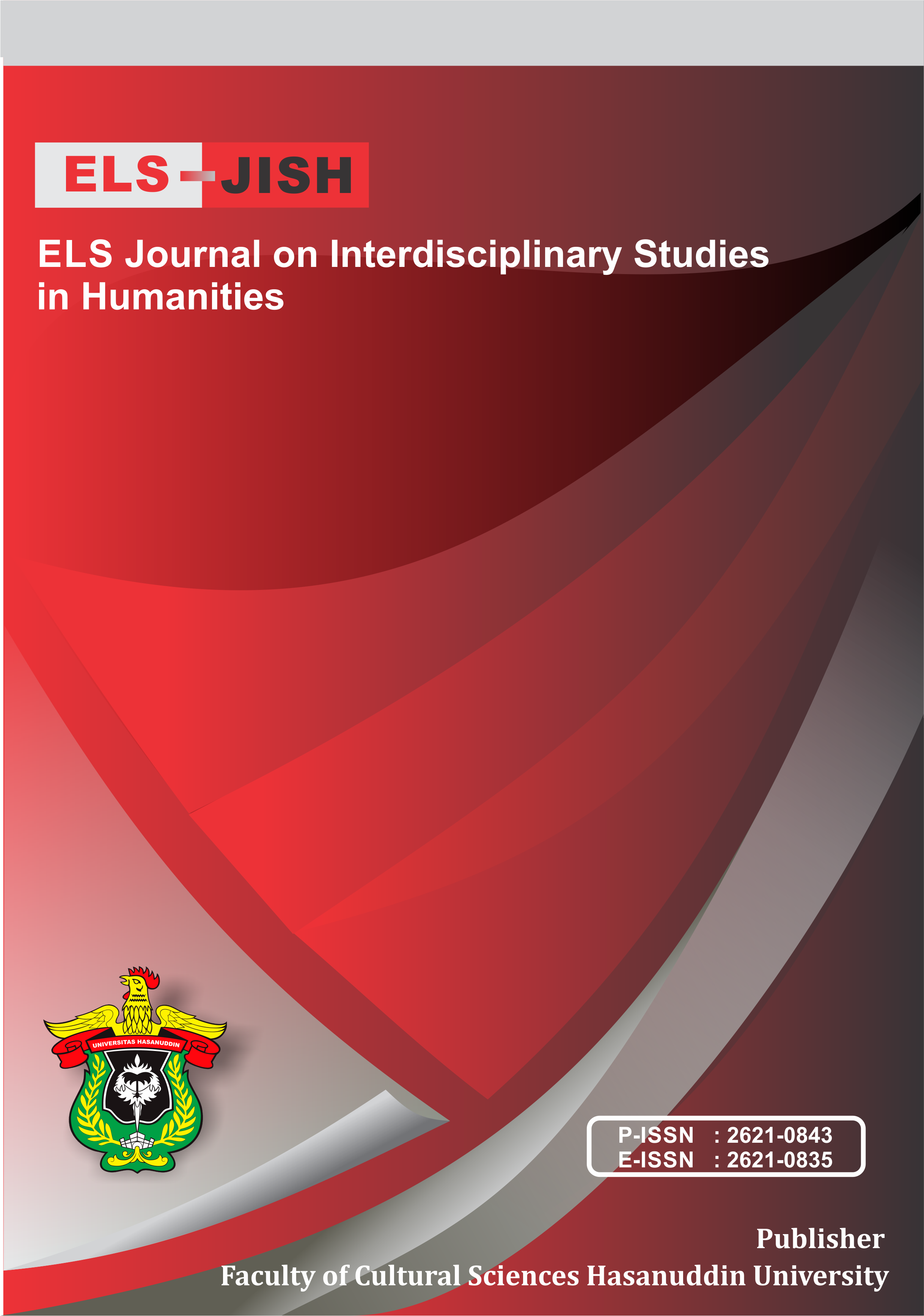Language Curriculum in America and Indonesia: A Comparative Analysis for Improvement of Indonesian Character Education Practice
DOI:
https://doi.org/10.34050/elsjish.v4i2.14008Keywords:
The U.S. English Language Arts Curriculum, Indonesian Language and Literature Curriculum, Character EducationAbstract
This article explores the U.S. English Language Arts Curriculum and Indonesian Language and Literature Curriculum. A comparative analysis is drawn to investigate ideological, cultural, and political economy factors that influence the development of both curricula. In addition, the educational purposes and philosophies that support both curricula are also exposed. Specifically, the discussion of the unstated purposes of the curricula shows an interesting finding. Language and literature curriculum of both countries highlight the importance of citizenship and character education and are integrated in the teaching of the curricula. However, the US language curriculum places a premium on fostering American identity, with an emphasis on increasing learning for professional workforce and career-ready individuals, which will benefit the global economy in the future. Meanwhile, Indonesian language curriculum gives priority to moral and religious instruction. The language and literature teaching are integrated in nation’s character building. After analyzing, comparing, and contrasting both curricula, the author found that America successfully instills character education to shape the worldview and characters of its citizens extracted from their clear ideology, while Indonesia is somewhat inexplicable and vague. Therefore, this article shows room for improvement for educators and educational leaders in Indonesia to be clearer in defining which character is best exposed in the curriculum.Downloads
References
Apple, M. W. (1993). The politics of official knowledge: Does a national curriculum make sense?. Discourse, 14(1), 1-16.
Beach, M. J. (2007). The ideology of the american dream: Two competing philosophies in education, 1776-2006. Educational Studies: Journal of the American Educational Studies Association, 41(2), 148-164.
California Department of Education. (1998). English language arts content standards for California public school. California: The California Department of Education. Retrieved from http://www.cde.ca.gov/be/st/ss/documents/elacontentstnds.pdf
Common Core State Standards Initiative. (2010). Common core state standards for English language arts & Literacy in history/social studies, science, and technical subjects. Washington, DC: National Governors Association Center for Best Practices & Council of Chief State School Officers. Retrieved from http://www.corestandards.org/wp-content/uploads/ELA_Standards1.pdf
Fitch, R. M., & Webb, S. A. (1989). Cultural immersion in indonesia through pancasila: State ideology. Journal of Educational Thought/Revue De La Pensee Educative, 23(1), 44-51.
Galam, R. G. (1997). Curriculum development in indonesia, malaysia, and singapore. Alipato: A Journal of Basic Education, 2(1 & 2).
Ilma, Z., & Pratama, R. K. (2015, March). Transformation in Indonesian Language Curriculum: Pros and Cons between KTSP 2006 and Curriculum 2013 in Indonesia. Paper presented in International Conference on Trends in Economic, Humanities and Management (ICTEHM’15), Singapore. Retrieved from http://icehm.org/upload/5097ED0315007.pdf
Inderawati, R. (2013). The application of literature for all and literature across curriculum concept by responding literary works to the enlightenment of character education in Indonesia context. Journal of Teaching and Education, 2(1), 13-24.
Jones, A. G., & King, J. E. (2012). The common core state standards: A vital tool for higher education. Change: The Magazine of Higher Learning, 44(6), 37-43.
Marsh, W. W. (2015). Common core and the uncommon learner: How autism affects acquisition of common core state standards.Contemporary School Psychology, 19(2), 66-76.
Massachusetts Department of Elementary and Secondary Education. (2010). Massachusetts English language arts curriculum framework working draft. Massachusetts, USA. Retrieved from http://www.doe.mass.edu/frameworks/ela/0610draft.pdf
Ministry of Education and Culture. (2014). Peraturan menteri pendidikan dan kebudayaan tentang kurikulum 2013 sekolah menengah atas/madrasah aliyah. Retrieved from https://suaidinmath.files.wordpress.com/2014/09/3-pmp-b-ind-sma-allson-1juni2014.pdf
Rahman, F. (2018). The Constraints of Foreign Learners in Reading English Literary Works: A Case Study at Hasanuddin University. Journal of Arts and Humanities, 7(2), 01-12.
Reese, W. J. (1998). American high school political economy in the nineteenth century. History of Education, 27(3), 255-265.
State Education Standard. (2012). The voices of non-adopters: Members of the virginia and nebraska state boards of education on why their states did not adopt the common core standards. State Education Standard, 12(2), 45-46.
Skerrett, A. (2010). Of literary import: A case of cross-national similarities in the secondary english curriculum in the united states and canada. Research in the Teaching of English, 45(1), 36-58.
Stotsky, Sandra. (2013). An english language arts curriculum framework for american public schools. Arkansas, United States: The University of Arkansas. Retrieved from http://www.uaedreform.org/wp-content/uploads/2000/01/Stotsky-Optional_ELA_standards.pdf
Sufanti, M. (2013). Pembelajaran Bahasa Indonesia Berbasis Teks: Belajar dari Ohio Amerika Serikat. Magister Pengkajian Bahasa Pascasarjana Universitas Muhammadiyah Surakarta. Surakarta, Jawa Tengah. Retrieved from https://publikasiilmiah.ums.ac.id/bitstream/handle/11617/3363/2_Pembelajaran%20Bahasa%20Indonesia%20Berbasis%20Teks%20Belajar%20Dari%20Ohio%20Amerika%20Serikat.pdf?sequence=1
Teale, W.H. & Thompson, K. (2014, December). Litearature and the U.S. high school: current trends in curriculum, materials, and instruction. Paper presented at Seminario Internacional ¿Qué leer? ¿Cómo leer? Lecturas de Juventud, Santiago, Chile.
Downloads
Published
How to Cite
Issue
Section
License
Copyright (c) 2021 Bulqia Mas'ud

This work is licensed under a Creative Commons Attribution-NonCommercial-ShareAlike 4.0 International License.

















